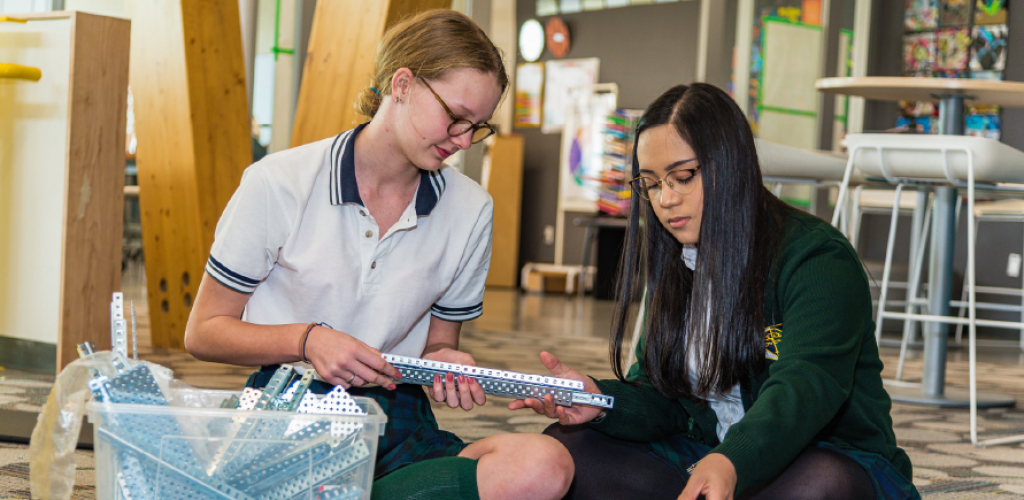
How to channel your child's inner gamer
By Mrs. Alanna Wellwood, Director of Learning Innovation
Managing video game addictions is a considerable parenting challenge that requires a proactive approach with an early start to prevent sedentary behaviour often developed in youth who are engaged in video games regularly. There are many parent resources available to help monitor and set limits/curfews and yet, most resources recommend a disciplinary approach which often intensifies the problem.
Taking a mentoring approach to your child's gaming addiction encourages families to understand the complexity of the issue and to look for the good in your children's media interests. A mentoring approach to gaming centers around the idea that "If you would like to play a game - you need to build it." This approach gives families the opportunity to learn how to work with electronics through building and coding to develop their skills, knowledge, confidence and autonomy in an area of interest or passion. To channel your child's inner gamer, we've created a list of new platforms and products that make video games educational and engaging for the entire family:
Build kits
- Little Bits - 'Rule your room' kit - creates touch-activated inventions to control your belongings with sensors, motors, lights and sounds. Age recommendation: 8-12 years old.
- Kano Computer kit - build a computer page-by-page. Connect the board, buttons, and bits to learn how they work. Age recommendation: Ages 6+.
- Piper Computer kit - build your own fully functioning computer and learn everything about computer science, electronics, and coding. Age recommendation: Ages 8+.
- Rotorgeeks - purchase parts for kits
Code and microcontrollers
- Microbit - lessons, projects and inspiration ideas on what to code.
- Raspberry Pi - miniature dual-display desktop computer that teaches children how to code with scratch and python, create websites with HTML and CSS and to invent mobile apps for Android devices.
- Arduino - open-sourced electronics platform based on easy-to-use hardware and software. You can tell your Arduino what to do by writing code and using the Arduino board.
Web-based tools
- Scratch - create stories, games and animations
- Python - programming language that lets you work quickly and integrate systems more effectively.
- Build Box - no code game developing platform
- Cocos - integrated game development tool focused on content creation
- Unity Pro - create, operate and monetize applications and immersive experiences
- Tynker - everything your child needs to learn computer programming the fun way!
- Instructables.com - step-by-step guidance on creating a variety of projects